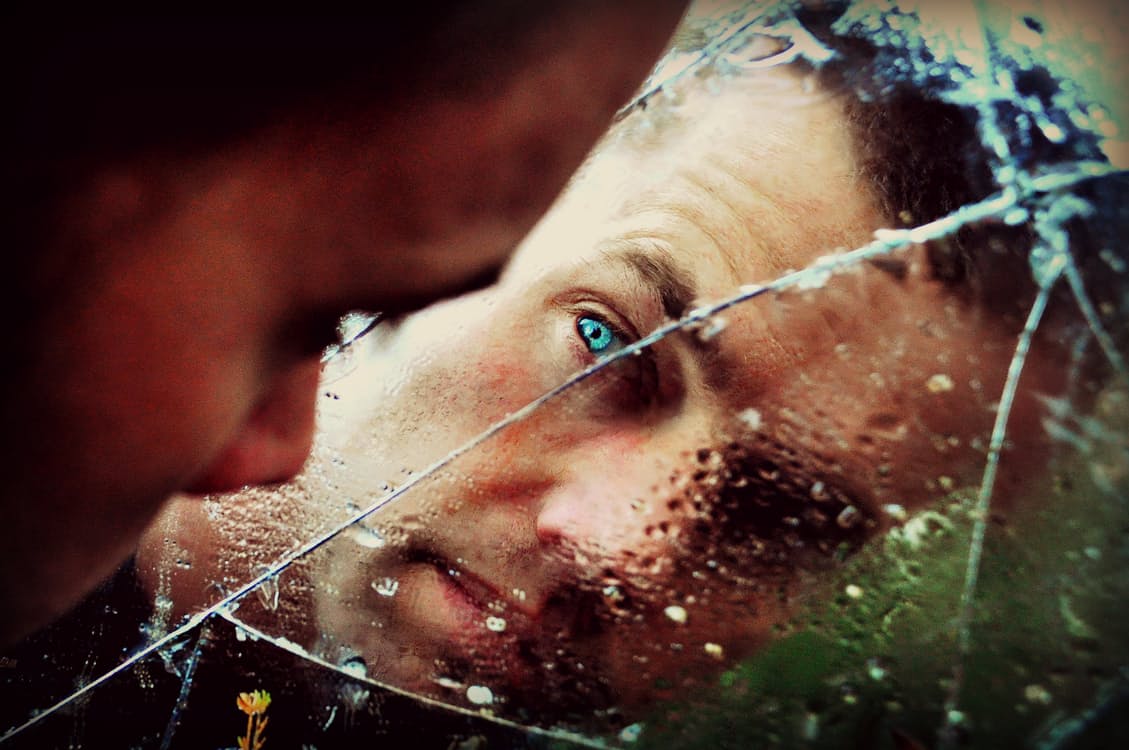
Many aspects of our lives include grief and loss. No one is immune from experiencing the effects this plays in our lives. When we look at our dreams, goals and expectations regarding health, career, relationships, etc., there is often a chasm between what we “thought” would happen or where we “thought” we’d be versus the reality of what our lives become. We dream of a career and end up in a job, we marry with hope of the perfect marriage only to find it to be an illusion. There is loss and disappointment in the space between our aspirations and the reality of what our life is.

Once the reality of adulthood hits us and we figure out a job is a necessity, we can either enter the job market equipped or ill-equipped. Some have a dream of their ideal job and what they would like to do only to find out they hate it or it wasn’t what they had anticipated. Others find a job to get by until they can get their life together only to realize several years into their journey that they are still in the same spot and feel unfulfilled. It is helpful to be able to talk with someone to develop a new vision for our career and lives.

Self-harm in adolescents is more common than we want to believe and it is growing. The behavior represents an unmet need(s) in young people (most often girls) and/or a method of dealing with emotional pain. Having someone to talk with who is outside the family dynamic is crucial for the young person so an understanding of their behavior and the risks associated with self-harm can be established. It is also important to identify those at significant risk of suicide and help the adolescent incorporate safer ways to recognize and process emotion pain.

Inside every conflict is a dream, longing or goal. Conflict generally stems from a desire for power and control. The conflict escalates when each person believes their perspective is the only truth. They argue to prove their own position on the issue. Unfortunately, this belief builds walls instead of bridges. Once we realize that there are always two points of view in a conflict and both are valid, it is no longer necessary to argue for our own position. Learning to listen to understand rather than to respond will help empathize with our partner’s feelings even if we don’t agree with their point of view. With empathy and understanding, it is easier to find a solution that works for both of you rather than insisting on your own way.

Emotions make life rich and fascinating as well as challenging and painful. As humans, our tendency is to ignore the painful emotions and will do anything to not feel the pain. We try to numb the pain with alcohol or other self-harming behavior. We isolate and cut off communication with others. Suppressing or denying our emotions is nearly always the worst choice possible. While we believe we are minimizing the pain, we are actually making it worse. We look at a short-term fix, the instant gratification of “feeling” better while ignoring the long-term consequences of this action like increased stress, guilt or shame. Embracing the emotion by validating it gives it a face so it can be experienced which makes it easier to make peace with it. It isn’t the emotion that is good or bad, but rather our thoughts and beliefs about that emotion. By embracing our emotions, we tend not to as judgmental of ourselves for having them.

There are three basic aspects that comprise our being: physical, mental and spiritual – like a 3-legged stool. If one of the legs is off balance, our life is also off balance. Christian counseling integrates the client’s faith as a part of their counseling process. It acknowledges that our spiritual journey is instrumental in healing emotional or behavioral problems. Christian counseling endeavors to help clients change behaviors and attitudes by offering insight and guiding decision making. This is accomplished through teaching problem-solving skills and encouraging the recognition and expression of emotion.

Depression is often defined as anger turned inward caused in part by unexpressed emotions such as hopelessness, despair, impending doom, emptiness, apathy. disappointment, guilt, shame and self-hate. Feeling down, or as if you are living in a black hole, from time to time is a normal part of life. Depending on the severity of your symptoms, depression can make it difficult to enjoy life and just doing what “needs” to be done in a day can seem overwhelming. Women and men often display different sides of depression. While women may seem moody and weepy, men may display anger and restlessness. When depressed, people may feel like nothing will ever change. Regardless of how it plays out, remember that feelings of helplessness and hopelessness are symptoms of depression—not the reality of your situation.

We all get nervous or anxious occasionally, usually regarding a specific event. Normally we can take these moments in stride. However, when anxiety becomes so persistent and excessive that panic attacks or phobias begin, our daily routines are affected and life seems overwhelming. Dysfunction and imbalance replace our sense of overall well-being. Successfully treating problematic anxiety is possible through cognitively addressing the physically symptoms and the beliefs held about the issues at hand.

Communication is the #1 problem that comes up in couples counseling. It is a complex issue yet simple at the same time. Self-talk, that non-stop voice in our heads, narrates every moment of our lives. This voice either tells us how wonderful our spouse is or how terrible he/she treats us. This story tends to become fact over time and we don’t even realize it. In conflict, the tendency is to prove a point and/or to get the other to agree with us. It’s hard to remember that in every conflict there are two points of view and both are valid. Learning to listen to truly understand rather than respond is key in learning how to navigate conflict effectively.

Women generally take on many roles throughout their lives and may experience certain biological, environmental, and psychosocial challenges related to gender which can have a significant impact on mental health and well-being. Women are more likely than men to experience specific mental health concerns such as bulimia and anorexia. Postpartum depression is also predominantly a woman’s issue. Women’s issues are more likely to influence mental health concerns that impact daily function. Women generally carry the most weight for the care and maintenance of the home, nurturing children, dealing with aging parents and providing additional income for the family. If divorced, as a single parent their income generally is drastically reduced. The role of women change over time and it is often difficult to transition especially once the children leave the home.

Being a teenager in today’s world difficult for everyone involved. Adolescents must deal with peer and social pressure that includes tumultuous friendships, sexuality and body image, alcohol, drugs, bullying, power struggles with parents, preoccupation with social status at school, self-esteem issues, testing limits and rules, along with a myriad of other difficulties. Many teens feel misunderstood. While they experience deep emotions, they do not have the maturity to effectively deal with their emotions. Often teens can only see the here and now and don’t realize that the issues they are grappling with are momentary. Breakups are the end of the world. Broken homes also significantly impact the emotions of teens and many are angry. Being encouraged to talk with someone who will not judge and who listens to understand is crucial in helping teens become comfortable with themselves.

Low self-esteem is a negative view on self. As children, we are frequently shamed and receive the message that we are not good enough. This message is perpetuated through our negative self-talk and eventually we believe the “lie” that we are flawed and of no worth. Learning how to change the “tape” that demoralizes to a message of encouragement and hope is paramount in improving self-esteem. We are all worthy of love and have value.

Symptoms of PTSD are hard to manage and people experiencing the effects of past trauma often resort to unhealthy ways of coping such as drug and/or alcohol abuse or self-harming behavior. Therapy can help develop better coping skills by identifying and understanding the triggers, focusing on the here and now rather than being mentally transported to the activating event and learning self-soothing techniques to help calm and refocus the memory.

Children inadvertently grow up with the message “Shame on you.” They then learn to feel they are flawed and begin to see the world through a shame-based lens. This limits the person’s potential and energy. Perfectionism tends to become a behavior because then “I will be good-enough” yet it never happens. When we achieve, we subconsciously raise the bar and it is always unattainable – so we give up and don’t try. Changing our perspective and the story we believe about who we are is necessary to be able to change the behaviors.